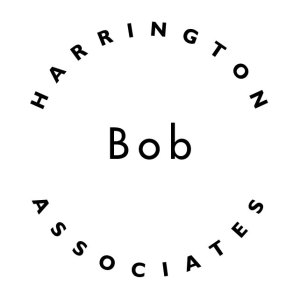The difference between success and failure in hiring the best person for an opening is paying attention to detail and executing a well thought out plan.
Common mistakes are:
Lack of preparation
While job descriptions are important, they can be too generic and lack specificity for the everyday world. What are the problems that need to be solved by this person? Why is the position needed? What skills and experience must the successful candidate have? What is your “pain” if the position goes unfilled?
Overly narrow job specifications
If you define the requirements too narrowly, you risk never find the perfect person and will likely not fill the position until you compromise. Focus on the critical must haves versus the nice-to-haves.
Salary not competitive
Be careful not to preset the salary range, and be flexible to attract the best person based on what the market is paying. Money is always a qualifier.
HR DOES THE RECRUITING
Delegating the hiring process to HR sends a message to the candidate pool that this position is not a priority for the hiring manager. Seldom does HR really know the details of what your department does and should not be the first line of communication. Take the lead and stay involved every step of the way.
Not optimizing the candidate pool
If you use only internal resources, you risk limiting the candidate pool to only the unemployed or unhappily employed who are actively looking for a job. If you choose to use a recruiter, you can reach the entire market of potential candidates. Be aware of the consequences of your choice. Don’t settle for who comes along unless it’s clearly the right fit. Don’t rush to fill the position, you risk doing it again soon if you are wrong.
Not pre-screening candidates
A half hour telephone interview can save hours of your organization’s time. Discover if the candidate has the knowledge and experience you need. Check their salary expectations. Gain a sense of “fit” with your culture. Pre-screening is a must for recruiting the best employees.
Not checking references
Vital to the selection process is proper reference checking done after interviewing and before a job offer. Have the candidate provide former supervisors, not HR, and then call them to probe areas of concern and obtain validation of their work style. Be comfortable that you have good insights into how the person will perform.
Not checking for fit
Once you have screened the candidate for proper skills and experience, make sure to probe their personality and management style to understand how they get things done and how they interact with others. Do their values match your organization’s value system? Will they fit in? This third leg of the hiring stool is the most critical to the ultimate success of the new hire.
Process takes too long
Make sure your interview process is clearly defined and communicated to all parties involved. Candidates can be demotivated and lost in the shuffle if the process drags on. You can lose your best candidate for the wrong reason. Keep it straightforward and reasonable.
Offer takes too long
Once you have completed the interviewing process and checked references, it’s time to make a decision. If you can’t, then say so but don’t let time slip by without communicating the delay. The best candidates are in demand and if they feel underappreciated, they will move on. It also tells people that you have an indecisive management style which is real turn-off.
Leaving your team out of the loop
Onboarding starts in the interview process. Involve key people who will interact with the new hire. Prepare them on their role and your expectations for the new hire. Nothing turns off a candidate then an interviewer who is not connected or knowledgeable of their resume or why they are there. Once hired, this level of participation will pay dividends by helping ensure the new hire’s success.
Talking too much in the interview
Provide information beforehand so the candidate will be prepared to talk about real and substantive issues at hand. Always let the candidate “sell” themselves before you “sell” the attributes of your company. Not sharing appropriate information beforehand hampers an efficient process.
Not communicating the status of the search to candidates
Keep your candidates informed regarding the progress of the process. Create expectations regarding next steps and then stick to it. Don’t rush the process but be honest and straightforward about how the candidate stacks up. You risk losing the best candidates when they become disillusioned because they don’t know what is going on.
The hiring process is as important as your sales and customer service strategies and should be given your best efforts as an organization.
Bob Harrington Associates has been in the executive search business for 20 years and can help you find the best people for your business.
